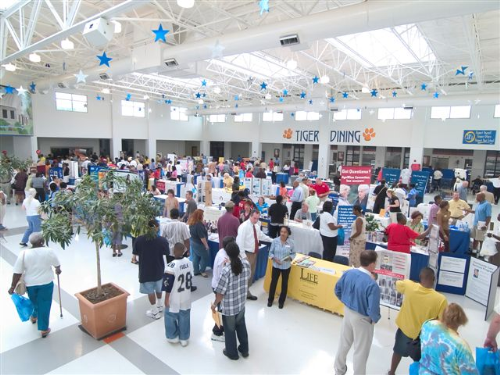By Daniel Silliman
Clayton News Daily
Published on: 8-15-06
In case of a heart attack, you might count the minutes: One, two, three, four.
It takes emergency vehicles in metro areas an average of eight or nine minutes to respond to a heart attack or a cardiac arrest, said Glenn McGriere, owner of Atlanta CPR and Life Support Training. After the first four minutes, chances of surviving drop by 10 percent every minute, he said.
“It’s the first four minutes after someone’s had a heart attack,” McGriere said.
According to the American Heart Association, about 700,000 people have a heart attack or cardiac arrest every year in the United States and about 450,000 of those die before they reach an emergency room, McGriere said.
“A lot of those people could be saved if there were someone there,” McGriere said, “you need someone nearby who knows CPR.”
Terri Edmonson, training supervisor at Clayton County’s 911 Call Center, will be at Congressman David Scott’s Second Annual 13th Congressional District Health Fair at Mundy’s Mill High School on Fayetteville Road in Jonesboro, this Saturday, to talk about how to become someone who knows CPR, who knows how to use a Automated External Defibrillator and who knows how to be ready to save a life.
“Just adjusting someone’s airway could bring someone back to consciousness. A little bit of training could make a big difference,” Edmonson said. “In the field, the actual citizen, the family member, the neighbor, could be a first responder.”
Edmonson said she will be bringing the CPR training dummies and defibrillators to the fair in hopes of increase awareness.
The more people talk about it, she said, the more likely they are to do something about their own education.
“A heart attack happens every three or four seconds. It may happen to you or a loved one,” she said. “The more people talk about it, the more they say, ‘yeah maybe this could happen to me.’”
The more people that take the threat seriously, the more people are prepared, she said.
If it does happen to you or someone you love, Edmonson said, 911 operators can talk someone through CPR procedures while the ambulances are coming, but they need help.
“Help us do our job better. Take a simple four to five hour class,” Edmonson said.


